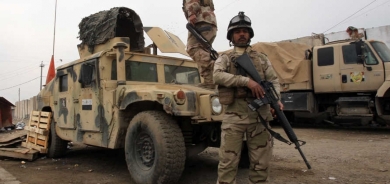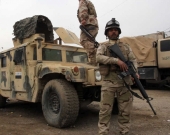U.S. Weighs Airstrikes on Iraq, Plans Aid Airdrops

The administration also planned beginning Thursday night to send military aircraft to drop emergency aid to members of the Yazidi religious minority, besieged on a northern Iraq mountainside by Sunni extremists.
There were indications late Thursday afternoon that some of the U.S. operations may be under way. Anwar Haj Othman, deputy head of the Peshmerga ministry, a defense ministry for the Kurdish forces, said from Erbil that U.S. jet fighters have struck extremist targets in the Sinjar plains in northern Iraq and a Kurdish settlement closer to Erbil province known as Gwair.
But the reports of U.S. strikes were denied by Adm. John Kirby, the Pentagon press secretary.
U.S. officials said earlier that the likelihood President Barack Obama will authorize airstrikes as increasing. Airstrikes could come even before those humanitarian airdrops, or shortly afterward, officials said, emphasizing that as of Thursday afternoon, the White House hadn't made any decisions to strike.
The Sunni militant group calling itself the Islamic State also is imperiling other parts of northern Iraq along with Erbil, the seat of the Kurdish regional government.
The U.S. has considered airstrikes before in Iraq, but backed down as the advance by Sunni militants slowed and the threat against Baghdad seemed to diminish. But the extremists have renewed their push in recent days, this time against Kurdish controlled territories.
U.S. officials said Thursday that defending dozens of American diplomats and military personnel in Erbil would justify strikes aimed at blunting the Sunni advance. The White House and Pentagon have repeatedly said they reserve the right to use force in Iraq to protect Americans.
Tens of thousands of Iraqi Christians fled an advance by the insurgents into the country's Christian heartland in the north. It appears to be a strategic push by Islamic State toward the semiautonomous Kurdish region, so far insulated from the militant takeover of parts of Iraq and a haven for displaced from all over the country.
The extremist march on the Christian area and the crisis involving the Yazidis are both taking place in the same northern province, Nineveh, where the militant group took the provincial capital Mosul on June 10 and sent Iraq into its worst crisis in years.
Islamic State militants have also taken over the Mosul Dam, the country's largest, according to a local resident.
On Sunday, the militants seized Sinjar, a Kurdish-controlled town with a large population of Yazidis, a Kurdish-speaking group that follows a pre-Islamic religion.
U.N. groups have estimated as many as 40,000 Yazidis have fled to the mountains without food or water and are trapped there, with all access roads out controlled by Islamic State. The United Nations Children's Fund said 40 refugee children have died.
The advancing militants killed some of the Yazidis who remained in the area know as the Sinjar plains, according to locals who fled and U.S. officials.
"They are unable to access food and water," said White House press secretary Josh Earnest. "They don't have any access to shelter. They have fled persecution, and efforts to leave the mountain are blocked by ISIL [Islamic State] forces who are threatening to kill them. This is a terrible humanitarian situation."
The U.N. Security Council scheduled an urgent meeting Thursday about the crisis in Iraq.
The stranded Yazidis are the last surviving community in their ancestral homeland of the Yazidis, long misunderstood by the outside world as "devil-worshippers." The assault on the community is part of a pattern by extremists of stamping out non-Islamic religious observation.
Iraqi officials and aid workers say at least one airdrop over the Sinjar mountains coordinated by Baghdad and the Kurdistan Regional Government provided drinkable water. But officials said the attempt reached only a small number of the tens of thousands of displaced.
The U.S. plans were being discussed Thursday at high-level meetings at the White House that also involved the U.S. military leadership, the officials said.
The U.S. troops in Erbil are part of a force of planners and advisers working in joint U.S.-Iraqi centers.
The airdrops will represent a major escalation of U.S. involvement in Iraq, which has been under siege this year by Islamic State, known in the West as ISIS or ISIL, which has been seizing town after town and terrorizing Shiite and Christian populations.
Washington has held off on any direct military involvement or assistance to Iraq as the Obama administration pressures Iraqi lawmakers to form a new, more inclusive government.
Airstrikes would show that the extent of the threat seen by U.S. officials now has surpassed earlier impulses to refrain from military action until a new government has been seated.
U.S. intelligence reports on the fate of the Yazidis closely mirror dire media reports, officials said. Vian Dakhil, the only Yazidi in the Iraqi parliament, said this week 70 children had died and Islamic State had killed more than 500 men. She accused Islamic State of genocide against the Yazidi populations.
"There is a collective attempt to exterminate the Yazidi people," she said.
U.S. officials said they have received a formal request for assistance—but didn't say if it was from the Kurdish regional authorities or the central government in Iraq. As part of the effort to send military advisers to Iraq, the U.S. has set up coordination centers in both Baghdad and Erbil, the Kurdish regional capital.
—Dion Nissenbaum and Carol E. Lee contributed to this article.
WSJ














